On the 1st and 2nd of August 2011 in Cracow and Oświęcim took place a festive celebration of Roma and Sinti Genocide Remembrance Day. This year it had a particularly festive character in the result of approval of the resolution on naming the 2nd of August Roma and Sinti Genocide Remembrance Day as the state’s festival. The organizer of the celebrations was The Group for Roma Affairs of the Common Government and National and Ethnic Minorities Commission of the Republic of Poland. The event was also supported by the Government Plenipotent for Equal Treatment, Minister Elżbieta Radziszewska and the Office for Democratic Institutions and Human Rights (ODIHR) OSCE. The Patronage on the celebrations was held by the President of the Republic of Poland, Bronisław Komorowski, as well as by the Chairman of the European Parliament, Prof. Jerzy Buzek.


This event is a symbolic commemoration of the so – called “family gypsy camp” of Auschwitz – Birkenau liquidation at the night of 2nd and 3rd August 1944, in the result of which about 3.000 Roma, including children, women and elderly were killed in the gas chambers. Altogether in the KL Auschwitz – Birkenau died 20.000 persons of Romani origin.

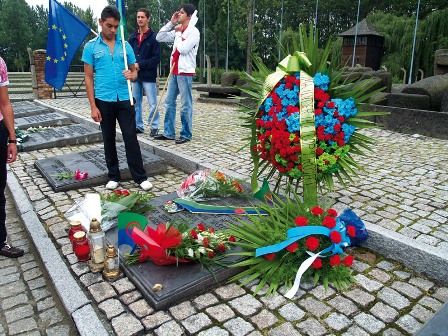
The first day of celebrations included the away meeting of the Groupfor Romani Affairs of the Common Government and National and Ethnic Minorities Commission, which took place in the building of the Lesser Poland Voyevoda Office of Cracow. In the meeting participated members of that Group, Minister Radziszewska, the Lesser Poland’s Voyevoda, Stanisław Kracik as well MPs and state’s officials. During the meeting there was read a full text of the Sejm RP resolution and its’ participants with the Minister Radziszewska, Voyevoda Kracik and Romani Member of the Common Commission, Roman Cojnacki at the top underlined the scale of the tragedy, which was for Romani nation the genocide of their predecessors during the Second World War, emphasizing also the necessity of showing its’ view.
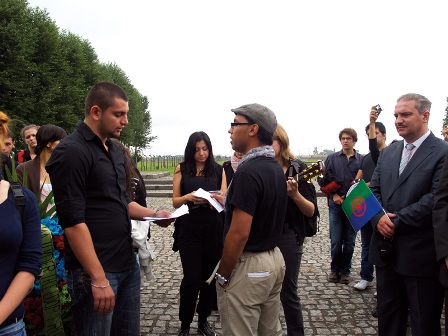
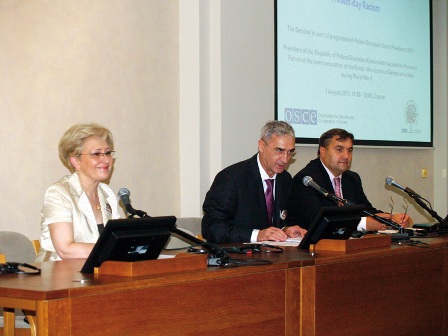
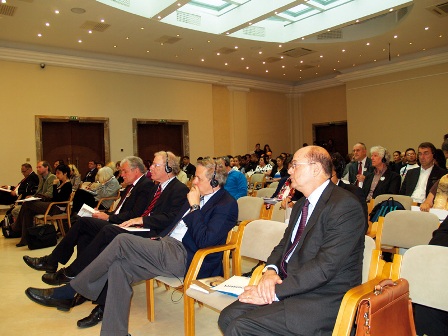
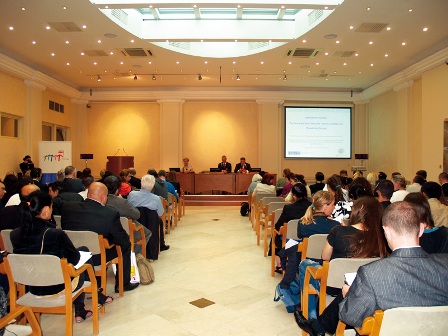
On the same day in the International Centre of Culture on the Main Market in Cracow took place the International Symposium titled “Roma and Sinti Genocide: Memory, Identity and Present – Day Racism”, which organizer was the OSCE ODIHR. Among its’ participants were present MPs and representatives of the Republic of Poland highest rank institutions, officials and activists of the international organizations with Andrzej Mirga (OSCE) at the top, as well as Romani youth from Poland and abroad. During the meeting there was presented the common OSCE and CoE website containing materials and information on Roma Genocide, as well as publications by the International Centre for the Education on Auschwitz and Holocaust, which is working within The Auschwitz – Birkenau Museum. The next elements of the conference were 2 panel discussions on the current state of knowledge and teaching about Roma Genocide during the Second World War and experiences in the field of teaching these topics in the past, but also about the future challenges in this field.
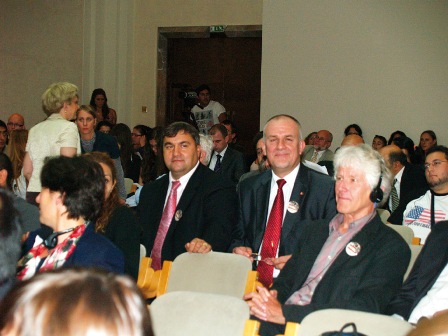
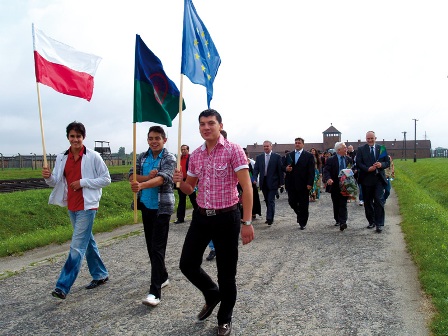
The participants of both debates, among whom besides the Republic of Poland politicians and members of the Group for Romani Affairs were present researchers from the universities of Berlin, Graz and Warsaw, representatives of the Museums for Roma History and Culture of Tarnów and Brno, employees of the Chambers of Memory in Oświęcim, Mauthausen and Amsterdam as well as the representatives of the European Parliament and other state’s governments, national and international media and of course Romani activists and youth form Poland and other European countries were thinking of the meaning of the Roma Holocaust remembrance for Europe as well as for them.
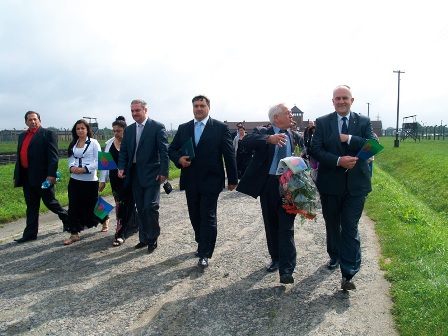
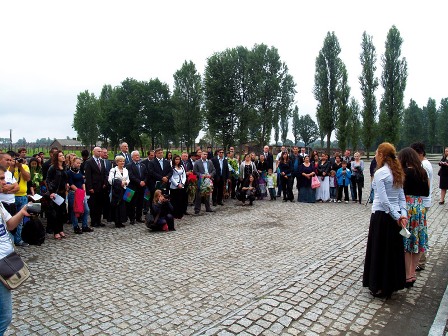
In the opinion of all the assembled the most important matter is official admission, that Roma genocide was not the result of only German Nazis, but also of supporting them collaborators in many countries. They underlined that this knowledge will not be easy to accept for the governments and political elites of particular countries, but it will be especially difficult for those societies. They expressed the same opinions on the issue, that acceptation of the fact of committing genocide against the Romani people is not a complete thing unless it will be followed by the spiritual and material compensation.
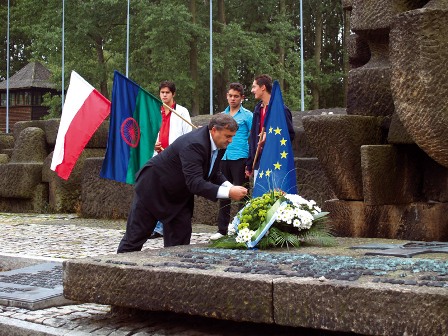
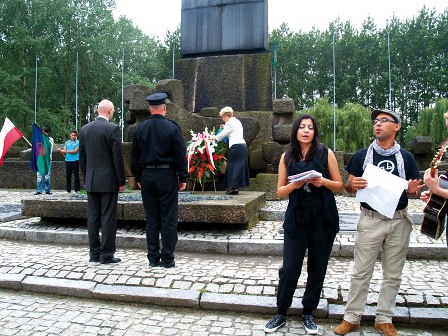
It was unanimously accepted, that preservation of the memory of the tragic events from 30s and 40s of the 20th century is very necessary at least due to still active fascist, racist and xenophobic oriented groups in Europe. They also warned against the attempts of shaping Romani identity on the basis of tragic fate during the Second World War. However, it does not mean, that one should forget about that tragic period of the Romani nation’s history, which is important for Roma, like similar events for Jews, Poles, Russian, Ukrainians and Belarusians. The losses of Romani nation committed almost 70 years ago must be present in the memory of the present and future generations of Roma. Although, they cannot be a prism in seeing the surrounding world in spite of similarity between some phenomena. Those phenomena 70 years ago as well as now in the 21st century are anyway an unquestionable prove of the connections between European Roma and their countries. The connections for which they suffered absolutely unjustified and inappropriate in any way tortures.
On the 2nd of August participants of the celebrations with the Minister Radziszewska, MPs, Members of the Group for Romani Affairs and the representatives of Romani international institutions and Romani youth took part in a festive ceremony at the Memorial of the Victims in Brzezinka (Birkenau). It had a very solemn and sometimes sad character. Elżbieta Radziszewska and Roman Chojnacki presenting their speeches devoted to remembrance of the killed Roma and their courage and abused feeling of dignity with a greatest difficulty tried to hide their emotions, just like other participants of the celebrations’ which was conducted by members of the European Roma Youth Network TernYpe, among whom was also present the representative of Romani youth from Poland Karolina Mirga. The member of TernYpe sang a song devoted to their murdered predecessors and they said a prayer for them. All the assembled in the silence gave honor to Romani victims of Nazi ideology as well as victims of other nationalities. The next point of the second day of celebrations’ was visiting terrains after the former concentration camp in Auschwitz and Birkenau.
The lesson learned during the two first days of August 2011 will stay forever in the memory of us – participants of the trip to Lesser Poland. These tragic events show us, that we can never allow not only for the resurrection of those criminal movements, but it is also necessary to stand up against any signs and acts of racism, xenophobia and ethnically based hatred in any place of Poland, Europe and the world.














